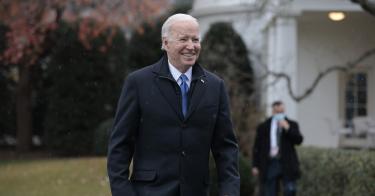Just like radicals toppling the statues of America’s Founders, the Biden administration and congressional Democrats are trashing the federalism principles at the heart of our constitutional framework.
Along with imposing a vaccine mandate, they are meddling in how we fuel our cars, heat our homes, educate our children and treat their ailments, zone our communities, and construct our roads—all of which represents a vast expansion of federal powers that undermines political accountability, policy innovation, and civic participation.
>>> 37 Biden Administration Regulations in the Pipeline that Americans Should Know About
A recent Heritage Foundation report offers abundant evidence of excessive encroachment. The number and cost of federal mandates have increased markedly—an additional 457 enacted between 2006 and 2019—as have preemptions of state and local authority. (Federal dictates have likewise engulfed private enterprise, including 856 new mandates between 2006 and 2019.)
Imbalance in the federal-state relationship has profound effects on self-government. The constitutional division of authority was intended to impede the consolidation of government power. Dispersed power also allows states to tailor policies to distinct geographic, cultural and political conditions brushed over by broad-stroke federal policies. Keeping elected officials and bureaucrats in plain sight—or closer, at least—heightens accountability, and citizens are more likely to participate in the democratic process when their impact is undiluted by political interlopers.
Growth in the number and scope of federal mandates is largely a modern phenomenon. Researchers have documented one instance of Congress enacting a major mandate in 1931, one in 1940, none in the 1950s, nine in the 1960s, 25 in the 1970s, and 27 in the 1980s.
Since 2000, Congress and various presidents have approved more than 190 statutes with intergovernmental mandates, according to the Congressional Budget Office. Collectively, the laws have imposed more than 1,000 separate directives. The volume of red tape is massive.
States are also much more dependent on federal grants-in-aid, which comprised nearly a third (32.4%) of total state spending in fiscal year 2020.
The number of federally funded grant programs grew from 132 in 1960, to 387 in 1968, and 664 in 1998. That number is now 1,274—and growing.
Washington is about to unleash the second injection of COVID-19 cash—some $1.9 trillion under the American Rescue Plan Act—along with $1.2 trillion from the Infrastructure Investment and Jobs Act. Moreover, if passed by the Senate, the inaptly named “Build Back Better” bill will dispense several trillion dollars more.
The various conditions attached to the grants drive policy at the state level and inject federal involvement in virtually every aspect of local governance.
Such excessive federal interference inhibits policy competition among states, as well as the relative transparency and accountability of state-level and local-level regulation. It also impedes the ability of both citizens and businesses to escape flawed policies by crossing state borders.
Previous efforts to curb intergovernmental meddling, such as enactment of the Unfunded Mandates Reform Act, have largely failed. New actions are sorely needed. Congress should start by requiring legislative sponsors to identify the constitutional basis of their bills. Floor time should be allotted to debate the sufficiency of the justification.
>>> 6 Details That Reveal Long Reach of Biden’s Vaccine Mandate
Congress should also codify President Reagan’s Executive Order 12612, which directed departments and agencies to grant states the “maximum administrative discretion possible” and to limit state discretion “only where constitutional authority for the action is clear and certain and the national activity is necessitated by the presence of a problem of national scope.”
Agencies should also be required to conduct federalism assessments (for review by the Office of Management and Budget) for all proposed rules with federalism implications. Each assessment should analyze the state costs that the rule would impose, and agencies should be required to report the results of the assessments to Congress and the public.
The challenge before the nation is to divest power from the administrative state, restore the constitutional constraints that best safeguard liberty, and make America exceptional once again.
This piece originally appeared in The Washington Times



